Confederate Truths: Documents of the Confederate & Neo-Confederate Tradition from 1787 to the Present.
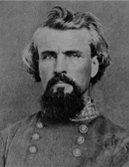

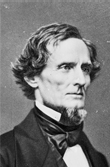
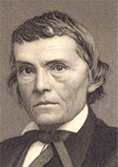


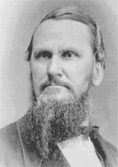
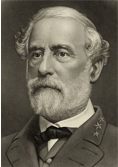
Foriegn looking childred of the "extreme Southern type," in the streets of Boston cries the "Confederate Veteran"
Confederate Veteran, Vol. 24 No. 11, November 1916 pp. 484, editorial, an example of the Anglo-Saxonism of the Confederate tradition. Note the comments about the "extreme Southern type" in the referral to European immigrants. The Confederate Veteran was the official publication of the United Confederate Veterans, United Daughters of the Confederacy, Confederated Southern Memorial Association, and the Sons of Confederate Veterans.
The editorial follows:
BOSTON, PAST AND PRESENT.
James Callaway, in the Macon Telegraph, quotes from a letter written by Col. B. W. Hunt, of Eatonton, Ga., while in Boston recently, in which he makes some pertinent comment on conditions in Massachusetts in contrast to those in the South. Colonel Hunt says :
"I wish the Georgia people could see and benefit by the good carriage roads of this section. Here, where land is more valuable ten times over than ours, I have just ridden over the automobile roadway toward Plymouth, with a carriage roadway separated from ours by ornamental shrubbery and still another way for men and women riding horses, this too a public street, not a park.
"Trees line the public roads nearly all the way for fifty-odd miles between Boston and Plymouth. Take an automobile any way in Middle Georgia, and one finds the trees shading the roadway girdled by . the road gang or by the county authorities killed to plant a few more hills of corn and cotton. So long has the process gone on that the killing of the trees is not noticed at all by the average traveler. That which makes New England attractive to the traveler is grass everywhere, even under the shade of the trees. Their elms (Ulmus americana) grew in better form than ours on every visit I have heretofore made North; but now they show disease and decay, caused by ravages of the gypsy moth. As the chestnuts and the American elms die out in the Northern States, our Southern oaks are left without rivals on the American continent. Having these trees native to our land, to be had for the transplanting, surely our great highways, like the Dixie, should be planted free from any disease and adapted to all conditions that our seasons impose.
"Well, we have visited Plymouth, where the second English colony was permanently planted in 1620. A small rock is fenced in with iron, covered with a canopy and engraved as the landing rock. It may be. Who knows? It is now large enough to spread a dinner for four people; and if I had been consulted, I surely would have chosen one large enough for the Mayflower passengers to all have gathered on with dry feet. If they fell on their knees, as is reported, before falling on the aborigines, I would have selected a rock large enough to keep the knees of the worshipers dry. The Pilgrim monument bears the inscription, `Dedicated to religious liberty.' This sounds queer to a descendant of Quaker ancestors, 'who barely escaped with their lives. Again, had I been consulted, I would have added to the motto: `Religious liberty to all whose theology is precisely like unto ours, and to all others persecution.'
They set an example on many things we could follow with profit to our section. The battle fields lost to the British are preserved, and the way of retreat marked out as Georgia would do only where the field was won by Georgians.. How strange history is written! Bunker Hill, that we have always thought to have started the fighting between the colonies and the mother country, turns out to be Breed's Hill, the rebel officers fortifying and endeavoring to repulse the British from the hill they supposed to be Bunker Hill, and so it goes throughout the ages. The man who tells the best story of the times writes the permanent, but not the correct, record of the events of history. I would enjoy having you here that we could in honest spirit discuss the virtues and laugh, at the other side of these people, who look at life from a different angle than our point of view. Who is right? * * * It is good to see all sides of all questions and laugh out the objectionable and not fight it out on State lines, as all Europe is doing. If we change our government into a solid, compact, centralized governed country, friction and trouble will be laid up for future generations.
"As I see Massachusetts, it is the near-foreign-born, or children of .immigrants, who must control the State at the polls. Foreign-looking children in the streets are as numberless as bees, all of extreme Southern European type. The monuments record families of thirteen children in colonial times. A child with patrician lines is hard to find in the Boston of 1916."
Mr. Callaway comments thus: "Think of it! `Foreign-looking children in the streets of Boston are as numberless as bees, all of extreme Southern European type.' `A child with patrician lines is hard to find in the Boston of 1916.' The glory of the South is her citizenship. With us the Anglo-Saxon predominates. We are the descendants of the original settlers. Yet Boston papers sneer at us as the land of the `undesirables.' This sneer is now a part of the political conspiracy to arouse a spirit of antagonism against the South."